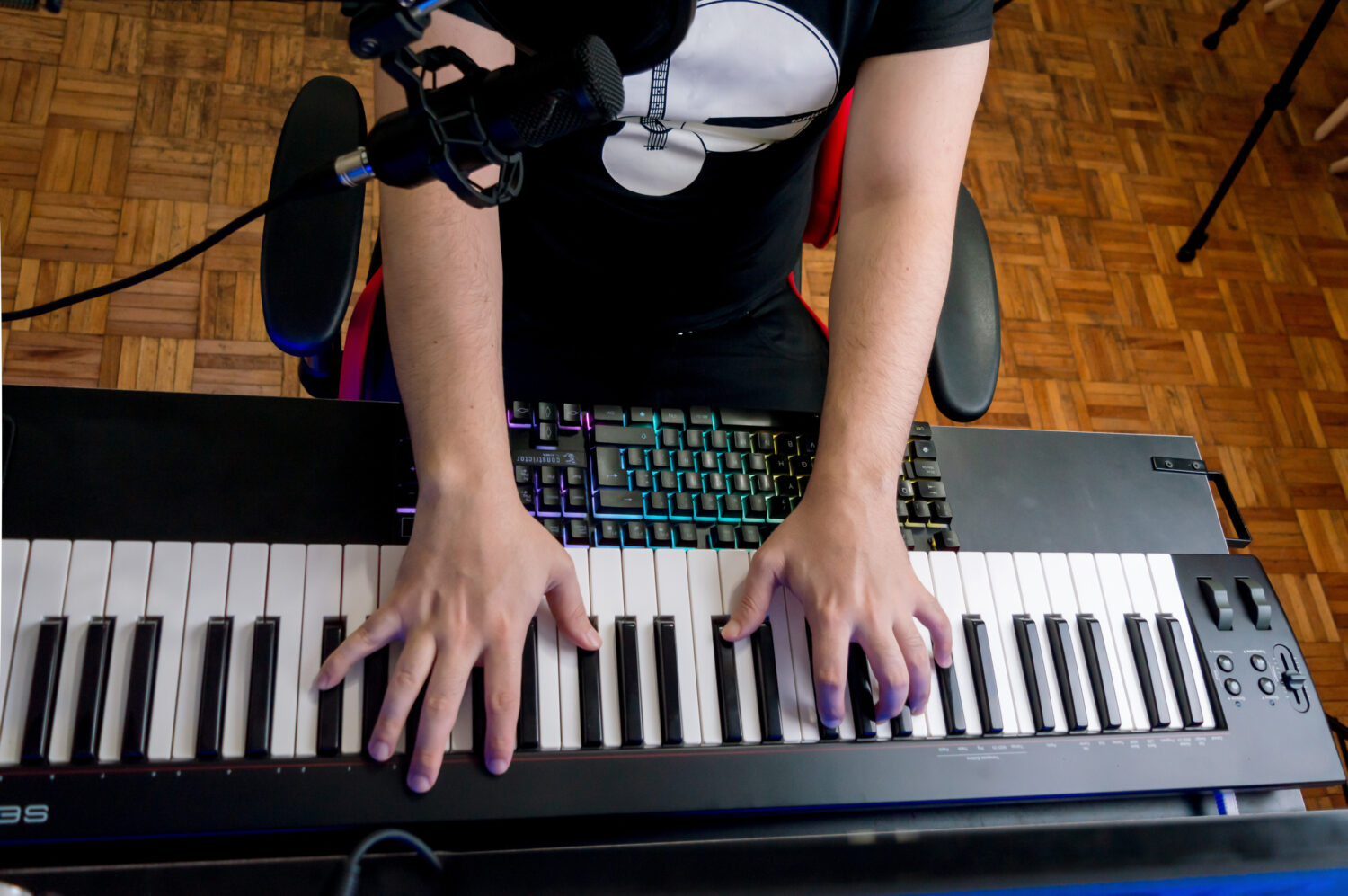What will I learn?
Through studying this course, you will develop the following:
- Exploring a range of musical contexts and make links to, and between, different musical practices, conventions and forms of expression
- Acquiring, developing and experimenting with musical competencies through a range of musical practices, conventions and forms of expression, both individually and in collaboration with others
- Evaluating and developing critical perspectives on their own music and the work of others.
- Engaging with music technology as a compulsory part of the course and gained confidence in the essential processes associated with music-making
- Developing as holistic musicians with experience as creators and performers
What is the structure of the course?
- Part 1: Exploring music in context – You will learn how to engage with a diverse range of music that will broaden your musical horizons and provide stimuli to expand your own music-making.
- Part 2: Experimenting with music – You will learn to work as researchers, creators and performers to experiment with a range of musical material and stimuli and connect theoretical studies to practical work to gain a deeper understanding of the music you engage with.
- Part 3: Presenting music – You will learn to practice and prepare finished pieces that will be performed to an audience. In working towards completed musical works, you will expand your musical identity, demonstrate your level of musicianship, and learn to share and communicate your music.
- Part 4: The contemporary music maker (HL only) – You will learn to engage with the musical processes in settings of contemporary music-making. You will plan and collaboratively create a project that draws on your competencies, skills and processes
How will I be assessed?
Assessment
Standard Level
Exploring music in context
Students in SL select samples of their work for a portfolio submission. Students submit:
- written work demonstrating engagement with, and understanding of, diverse musical material
- practical exercises in creating and performing
30%
Experimenting with music
Students in SL submit an experimentation report with evidence of their musical processes in creating and performing in two areas of inquiry in a local and/ or global context.
The report provides a rationale and commentary for each process. Students submit:
- a written experimentation report that supports the experimentation
- practical musical evidence of the experimentation process in creating and performing
30%
Presenting music
Students in SL submit a collection of works demonstrating engagement with diverse musical material from four areas of inquiry.
The submission contains:
- Programme notes
- Presenting as a creator: composition and/or improvisation
- Presenting as a performer: solo and/ or ensemble
40%
Frequently Asked Questions
Which CAS opportunities are available?
Regular performances, concert visits, workshops from music professionals, music clubs including music tech club, orchestra and choir.
Which opportunities for further study are available?
The IBDP Music course is designed to prepare the 21st century music student for a world in which global musical cultures and industries are rapidly changing. The course offers a strengthened approach to student creativity through practical, informed and purposeful explorations of diverse musical forms, practices and contexts. For more information on careers related to this subject, please click here. For more information about studying Music at Higher Education, please click here.
Is there anything else I need to know?
For more information on studying this subject at IB, please see here



